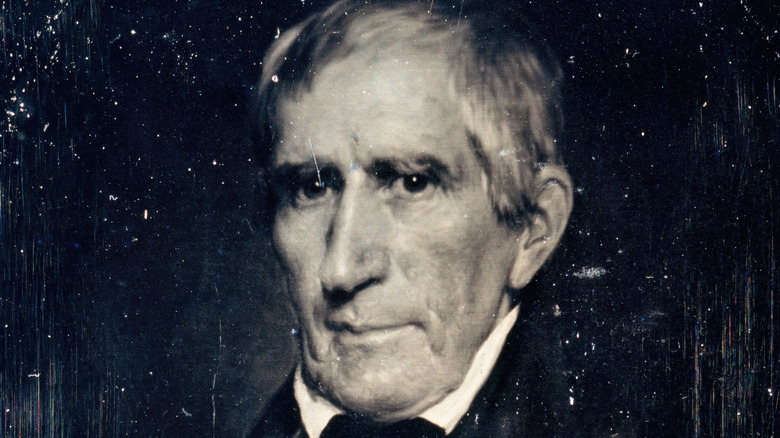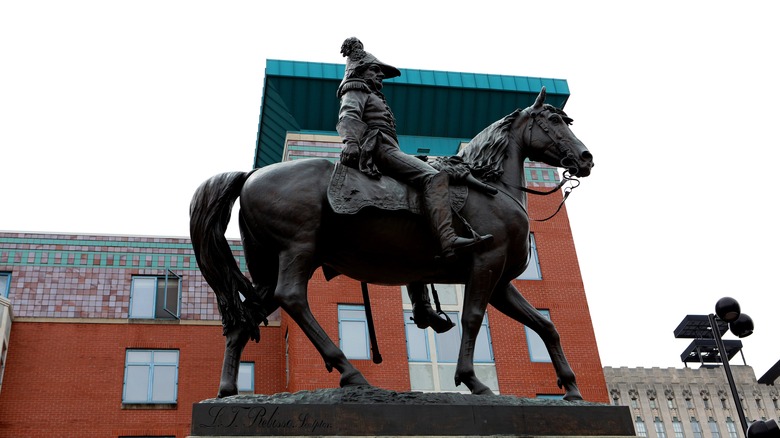What Really Happened After William Henry Harrison Died?
The 9th president of the United States, William Henry Harrison, is known for many things, according to the Constitution Center. A popular military leader from the Battle of Tippecanoe in 1811 — immortalizing in his campaign slogan "Tippecanoe and Tyler, Too" — Harrison was only one of two Whigs, a short-lived 19th-century political party, to ever become president, per Thought Co. And at only about a month, he also holds the dubious honor of serving the shortest presidential term in history.
What William Henry Harrison is perhaps most well-known for, however, is that he was the first president to ever die in office. It's gone down in history that Harrison died from complications related to pneumonia, caught after delivering his lengthy inauguration speech on a chilly day in Washington. Recent research, though, suggests that may not have been the actual case at all. What's more, after William Henry Harrison died, a crucial function of the federal government became a matter of debate.
The presidential line of succession was formalized
Interestingly enough, it's now believed by experts that what ended up killing William Henry Harrison wasn't complications from pneumonia after all — but instead, enteric or typhoid fever, which the president likely caught from Washington's tainted water supply. Keep in mind this was in a time before modern plumbing, and human waste frequently contaminated the drinking water. As medical scholars Jane McHugh and Philip Mackowiak explained to The New York Times, "As he lay dying, Harrison had a sinking pulse and cold, blue extremities, two classic manifestations of septic shock. Given the character and course of his fatal illness, his untimely death is best explained by enteric fever."
What's also notable about the death of William Henry Harrison, though, is that prior to his death, the presidential line of succession was uncertain. Some felt the vice president would naturally take the oath should a president die while in office, including William Henry Harrison's own vice president, John Tyler. Nothing in the constitution said this specifically, however, and so others disagreed. Nevertheless, Tyler took the oath of office after Harrison died, setting the precedent for presidential succession for decades to come — even though the Presidential Succession Act, signed by President Harry Truman, wouldn't come for about another century, according to the official website of the U.S. Senate.

